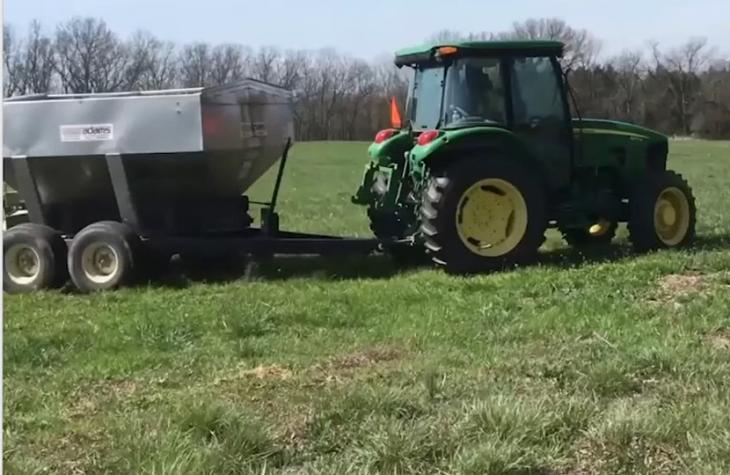
Avoid applying fall anhydrous in northern, central Missouri
Northern‐central Missouri fields face high nitrogen loss risk when applying anhydrous ammonia in fall; soil temps need to drop below 40°F.
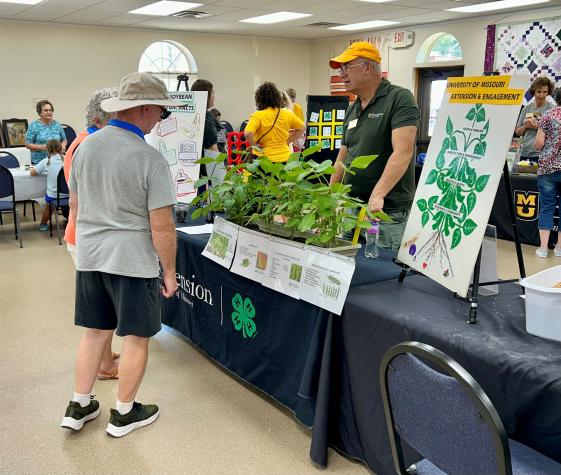
MU Extension highlights education, innovation at award-winning Soybean Festival
NORBORNE, Mo. – “Soy Much More for ’24!” rang true for this year’s Norborne Soybean Festival, Aug. 1-3 in Carroll County. For over 40 years, this festival has built civic pride, forged greater community bonds and celebrated the area’s number one industry – agriculture, said University of Missouri Extension engagement specialist Chelsea Corkins.
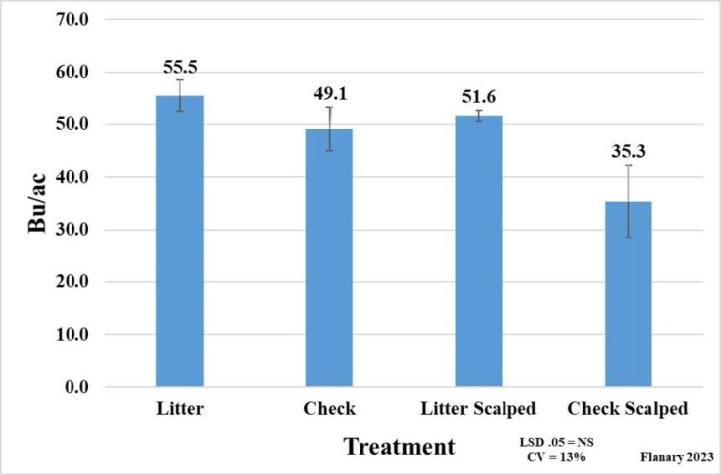
MU study looks at poultry litter's impact on soybean yields
Poultry litter may boost soybean yields, adding nutrients and organic matter, especially in eroded or low-fertility soils.
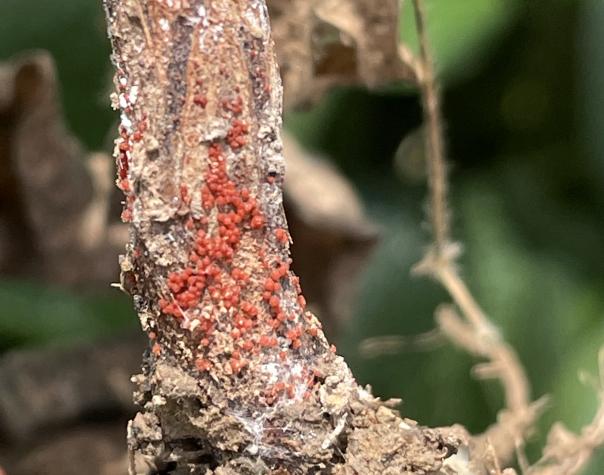
First case of red crown rot confirmed in Missouri
COLUMBIA, Mo. – University of Missouri Extension state plant pathologist Mandy Bish reports confirmation of red crown rot, a yield-robbing soybean disease, in Marion County in northeastern Missouri. This is the first confirmed incidence of the disease in the state. Bish says MU Extension specialists have been scouting for the pathogen since its confirmation in Illinois in 2018.
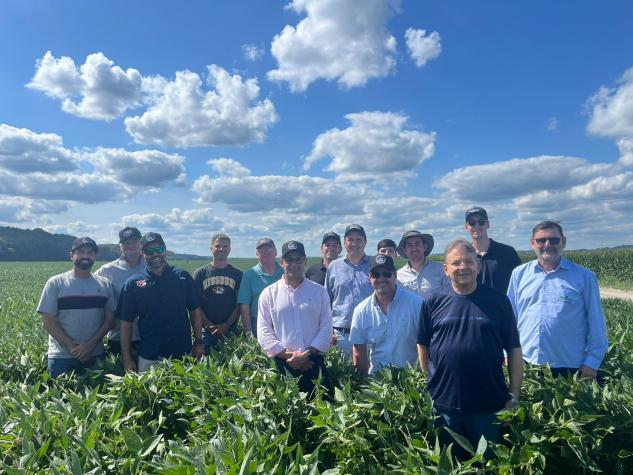
Brazilian farmers and crop consultants visit MU
Brazilian farmers and crop consultants toured Missouri soybean fields, research farms, and labs to exchange knowledge on crop production.
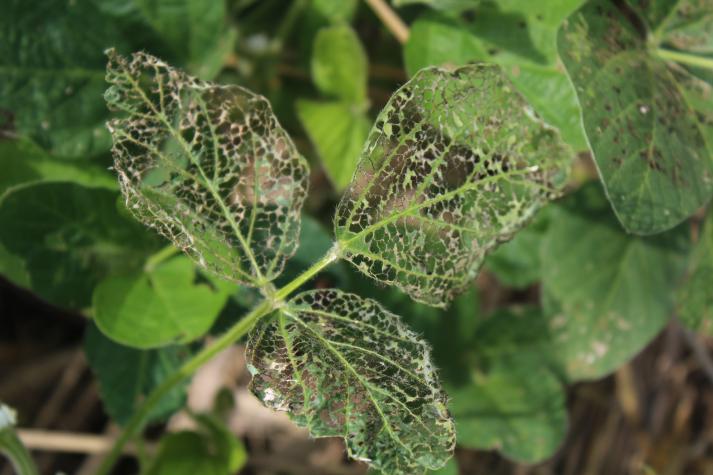
Japanese beetle numbers increasing in corn, soybean
Japanese beetles are rising in corn and soybean fields, causing defoliation and silk clipping. Scouting and timely control are key.

MU Extension releases soybean yield tool
A new tool predicts soybean growth and yields using weather and crop models, helping farmers plan management decisions.
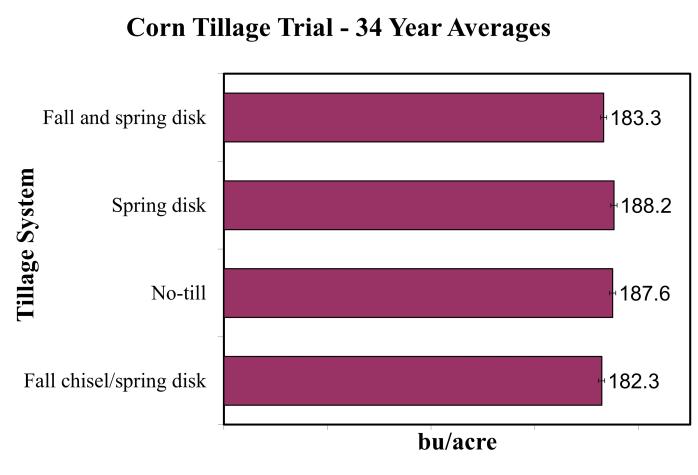
MU Graves-Chapple Center compares corn, soybean tillage systems over decades
Decades of research in northwest Missouri show no-till farming yields high returns and reduces costs for corn and soybean production.
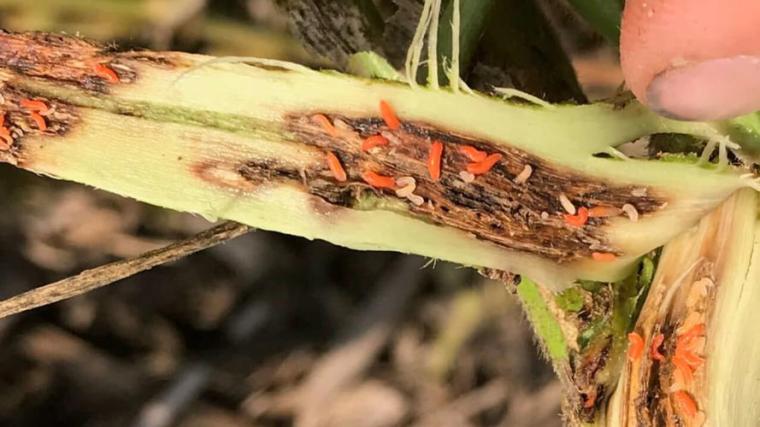
Soybean gall midge spreading in Midwest
Soybean gall midge is spreading in the Midwest, causing plant death and yield loss; scouting and crop rotation can help manage it.
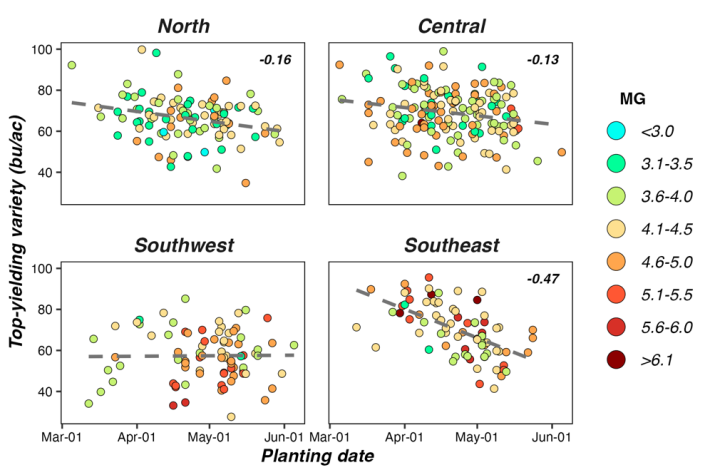
Challenges and strategies in optimizing soybean planting
Explore strategies to optimize soybean planting, from timing to variety and maturity group, for higher yield potential.
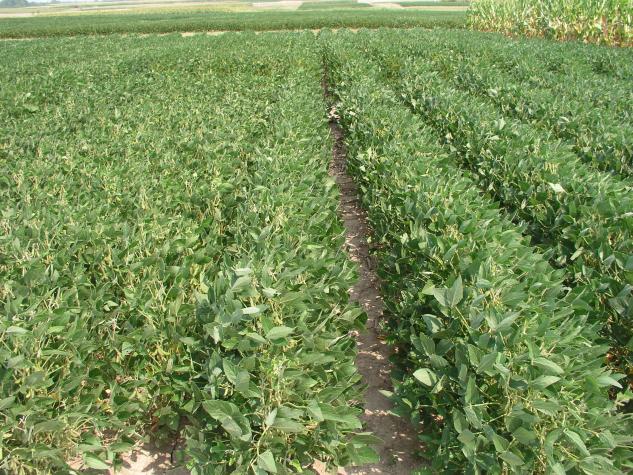
Research leads to potential increases in Missouri soybean yield
Research identifies strategies to boost Missouri soybean yields, including optimal planting dates and maturity group selection.
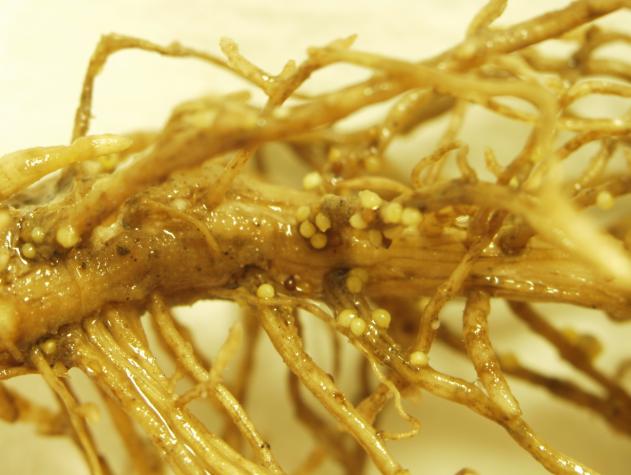
Be on guard for older soil-borne and look-alike soybean diseases
Farmers faced challenges during the 2023 drought as soybean diseases like sudden death syndrome, red crown rot, and charcoal rot exhibited similar symptoms.
MU Extension to hold crop and forage chat in Palmyra
Farmers in northeastern Missouri can get free crop and forage updates from specialists at an August Palmyra event.
Glufosinate-resistant Palmer amaranth found in Missouri Bootheel
Researchers confirmed glufosinate-resistant Palmer amaranth in Missouri, raising concerns for weed control and crop yields.
Plants respond to heat differently than humans
COLUMBIA, Mo. – Extreme heat affects plants differently than humans.With triple-digit temperatures this summer, grain crop growers should understand how heat affects plants, says University of Missouri Extension agronomist Bill Wiebold.First, human concepts such as “heat index” or “feels like” do not apply to plants, Wiebold says. People and plants feel and react differently to heat.
MU Extension guide helps farmers with replant decisions
COLUMBIA, Mo. – Challenging weather has forced Missouri farmers to make difficult decisions on whether to replant crops because of sparse stands or delayed planting.
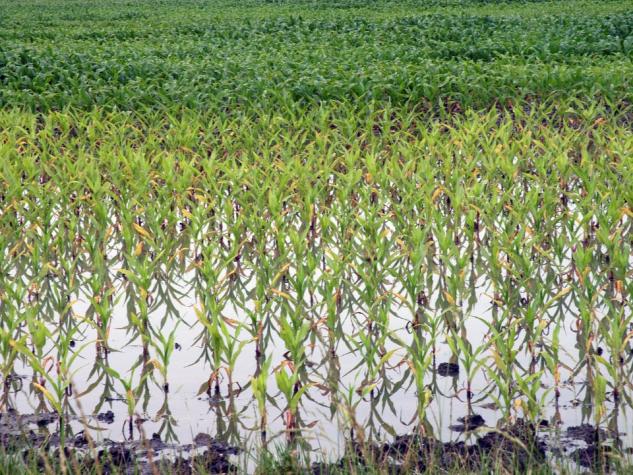
Rain, heat increase risk of ponding
Heavy rain and heat can cause ponding in fields, stressing corn and soybean seedlings and affecting growth and yield.
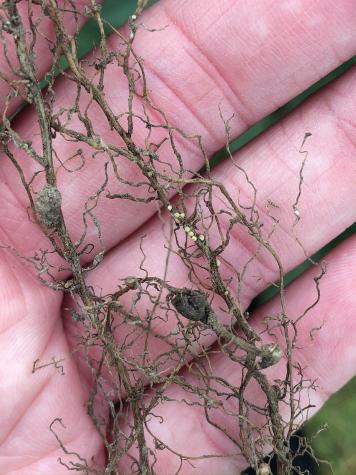
Test for SCN after soybean harvest
Missouri farmers can submit two free soybean cyst nematode tests after harvest to monitor and manage this costly pest.
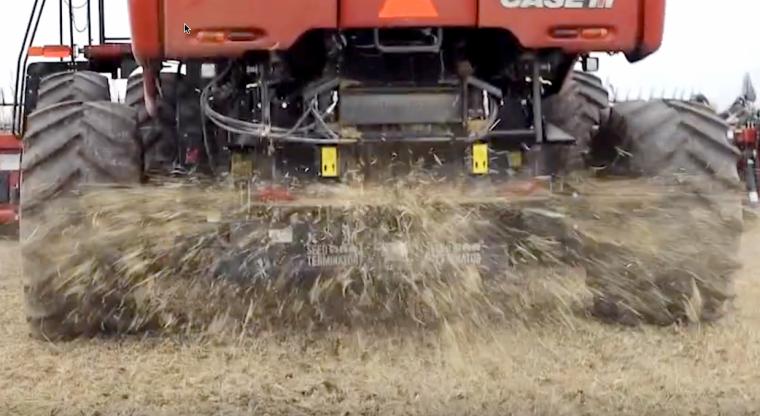
Mizzou Weed Science shares Seed Terminator research
Mizzou Weed Science's research shows the Seed Terminator attachment pulverizes 93.2% of waterhemp seeds entering the combine, aiding in weed control.
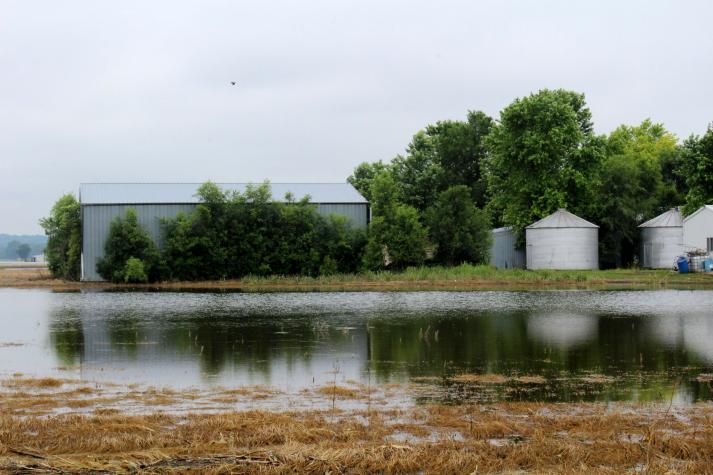
Mother Nature's drenchings damage crops
COLUMBIA, Mo. – Mother Nature has not been kind to Missouri agriculture in 2021, says University of Missouri Extension soybean specialist Bill Wiebold.Spring rains delayed corn and soybean planting well beyond the best date for yield, says Wiebold. Then the rain stopped and hot, dry weather slowed growth. Frequent heavy rains added to the misery in Missouri fields.
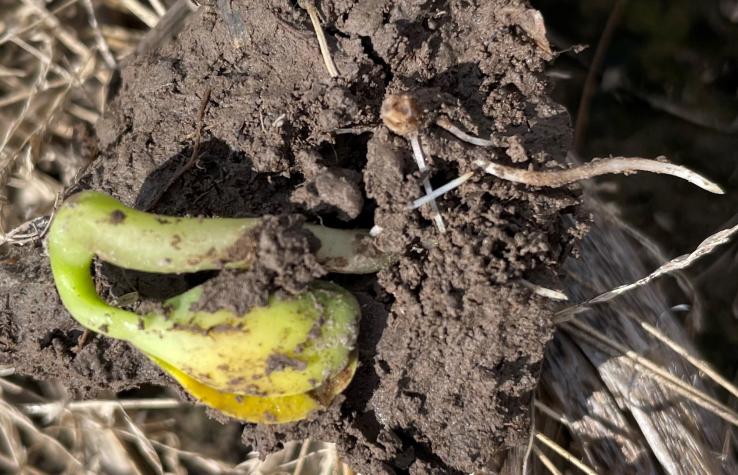
Spring rains bring root rots to Missouri field crops
Frequent spring rains set up favorable conditions for seedling and root rotting diseases in corn, soybean and wheat fields across Missouri.
Make the most from late-planted soybean
COLUMBIA, Mo. – Soggy fields, low soil temperatures and 16 cloudy days in May delayed soybean planting in Missouri.Average yield for soybean planted in the third week of June is at least 25% less than soybean planted in early May, and July plantings fare even worse, says University of Missouri Extension soybean specialist Bill Wiebold.

Free SCN tests available to farmers
COLUMBIA, Mo. – Missouri farmers can submit two free tests to beat the soybean cyst nematode (SCN) by contacting their county University of Missouri Extension center or the SCN Diagnostics laboratory.
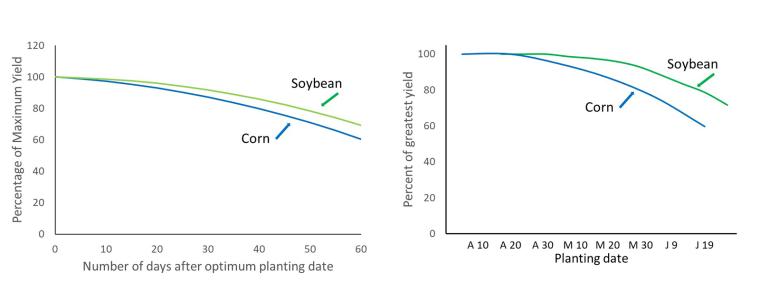
Should soybean be planted before corn? MU research still favors corn
Planting corn before soybean enhances productivity in midwestern rotations. Delaying corn planting can reduce farm efficiency.
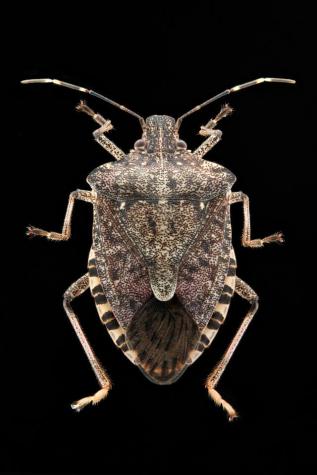
Crops face danger of BMSB damage
Brown marmorated stink bugs threaten crops, reducing yields in soybeans, corn, fruits, and vegetables across Missouri.
